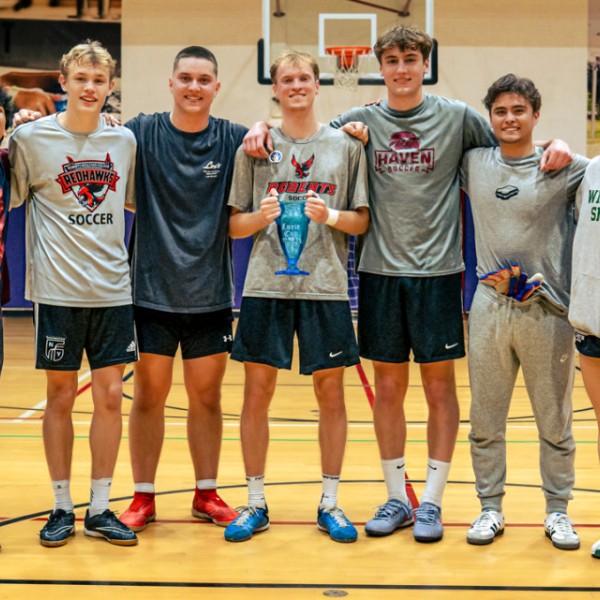The Polson Institute for Global Development announced grant awardees for a slate of collaborative projects across areas of wellbeing and inclusion, environmental sustainability, and food and nutritional security.
“These projects promise to advance research at the intersection of systemic inequality and social-environmental justice,” said Mildred Warner, professor of city and regional planning and global development and current director of the Polson Institute.
“Through this research the Polson Institute helps focus on the advancement of global development as a critical and participatory practice,” said Fouad Makki, associate professor of global development, and former director of the Polson Institute.
The six research initiatives span topics of engaged learning, agri-food systems, and environmental and social inequalities. Teams from Cornell will work with partners from New York State to Puerto Rico to sub-Saharan Africa.
Unequal Exposures: A Multi-Hazard Review of Environmental Inequity Collaborators
- PI: John Zinda, Global Development
- Collaborators: Jerel Ezell, Africana Studies and Research Center, Center for Cultural Humility; Shorna Allred, Center for Conservation Social Sciences, Natural Resources and the Environment, and Global Development; Julie Ficarra, Global Development
- Social science research on environmental hazards shows clearly that marginalized populations experience greater exposure to environmental harms. Yet the extent and nature of these inequalities differ across studies. These variations matter for environmental justice movements, which need to understand the variation in environmental disparities and opportunities for action. The research team will conduct a synthetic narrative review and a formal meta-analysis of research on environmental inequities. Their analyses will characterize uneven patterns of disparate exposure across hazards, locales, and research designs; identify factors driving these variations; and examine the methodological and contextual quality of environmental hazards research. The team will hold two workshops on environmental inequities and engage students in the research.
A Second Gondwana? Addressing Africa’s Growing Economic (D)rift
- Co-PIs: Parfait Eloundou-Enyegue, Global Development; Sarah Giroux, Global Development
- Collaborators: Zhuang Han, Ph.D. student in Global Development; Tristan Ivory, Industrial Labor Relations; Claude Mbarga, Institute of Demographic Training and Research (IFORD); and David Ngam, IFORD and MPS student in Global Development.
- Africa is emerging as a global epicenter of inequality. The region is home to 7 of the 10 most unequal countries in the world, and this inequality is exacerbated by uneven globalization and demographic change. The research team will launch a continent-wide, collaborative effort to analyze Africa’s rising economic inequality and identify the best policy remedies to counter this growing rift. Working with collaborators in several countries and Cornell units, the team will leverage a rich set of national statistics compiled by the United Nations and the World Bank over the last 60 years to account for Africa’s historical trends in economic inequality. The project’s geographic and substantive coverage — fully integrating analysis of within and between-country inequality — fills a gap in current inequality research.
Training Critical and Participatory Global Development Practitioners Through Engaged and Experiential Learning
- Co-PIs: Julie Ficarra, Global Development and Heidi Mouillesseaux-Kunzman, Global Development
- Collaborators: Jenny Goldstein, Global Development; John Sipple, Global Development; Terry Tucker, Global Development
- Engaged and experiential learning helps students integrate knowledge across the Department of Global Development’s signature strengths, and advance global development as both a critical and participatory endeavor. This project will strengthen the department’s engaged teaching and learning program by: 1) mapping existing engaged pedagogical approaches across the curriculum; 2) identifying community partners; 3) providing opportunities for faculty and students to share knowledge from engaged learning; and 4) developing a pilot for assessing the outcomes of the undergraduate internship requirement. This will help graduates become more critical and participatory global development practitioners.
Transforming Food Systems in the Anthropocene: A Curriculum Development Proposal
- PI: Mario Herrero, Global Development and Atkinson Center for Sustainability
- Collaborators: Daniel Mason-D’Croz, Global Development
- Current food systems supply food to more people than ever in human history, but they are putting serious pressures on the natural environment, while still failing to supply healthy and nutritious diets to everyone. Solutions that promote healthier, more environmentally sustainable and equitable transformations of the food system will have to be multidisciplinary to address the complexity of the food system. Cornell University, and Global Development in particular, is ideally placed to train the next generation of food systems thinkers who will drive these changes. This project will sponsor a workshop to review current food systems course offerings at Cornell and at peer institutions to identify new approaches to address the challenges and opportunities facing the current food system.
Extension and Community Engagement in Global Development
- Collaborators: Scott Peters, Global Development; Mary Jo Dudley, Global Development; Heidi Mouillesseaux-Kunzman, Global Development; David L. Kay, Global Development; Matías G. Flores, Ph.D. student in Global Development
- Universities, academic professionals, and students across the globe are increasingly challenged to become engaged in economic and social development. However, few opportunities exist to collectively study and discuss the motivations, implications, and assumptions behind calls for “engagement,” and the “application” of university-generated knowledge to address pressing economic and social challenges. This research group will offer an opportunity for such study and discussion for the Cornell community, through an innovative international examination of histories, theories, and current practices of university extension and community engagement initiatives, and their relationship to global development. Special areas of focus will include the emergence of what has been referred to as a “world-grant” mission for land-grant universities, and the recovery, reevaluation and re-imagination of critical traditions of extension and community engagement across the Americas.
LeadNY Study Tour: Engaged Learning and Community Development in Puerto Rico
- PI: Larry Van De Valk, Global Development
- Collaborators: Andrea Durmiaki, Global Development; Amizade; Caras con Causa
- LeadNY, a leadership development program for adult professionals in the food, agriculture and natural resource sectors of the Northeast, will offer a study trip to Puerto Rico, where participants will learn about recovery efforts from multiple natural disasters in recent years. For the first time in the program’s history, LeadNY will partner with the service-learning organization Amizade and their local partner, Caras con Causa, to incorporate three days of engaged learning and service-learning work in community gardens, nurseries, and mangrove reserves, as well as meet with community leaders to learn more about food insecurity, food distribution and climate mitigation. Andrea Durmiaki, LeadNY program aide and a Global Development MPS student, will evaluate the effort to assess engaged learning outcomes.
The Robert A. and Ruth E. Polson Institute for Global Development supports theoretical and applied social science research. Established in 2001, the Polson Institute has enhanced and extended the efforts of department members, creating space for collaboration within and between Global Development, the College of Agriculture and Life Sciences, and the Cornell University community.
Kelly Merchan is a communications specialist in the Department of Global Development.





